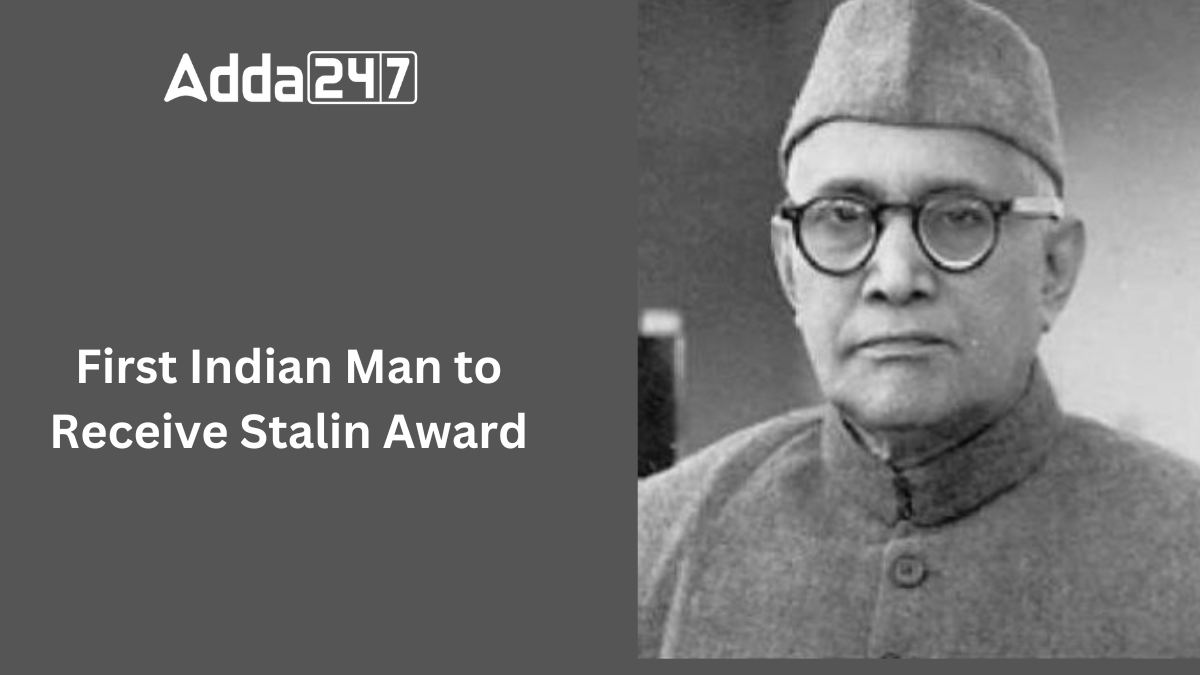Saifuddin Kitchlew was a prominent Indian independence activist, barrister, and politician. Known for his significant contributions to the Indian independence movement and his later role in the peace movement, Kitchlew is remembered for his leadership during key events and his role in promoting harmony and cooperation.
First Indian Man to Receive Stalin Award
Saifuddin Kitchlew, a key figure in India’s independence movement, was the first Indian to receive the Stalin Peace Prize in 1952. Awarded for his significant contributions to peace and international harmony, this recognition highlighted his efforts beyond India’s independence struggle. Kitchlew’s commitment to global peace was a notable aspect of his post-independence career, underscoring his enduring legacy as a prominent peace advocate.
In which Year Saifuddin Kitchlew Received the Stalin Award?
Saifuddin Kitchlew received the Stalin Peace Prize in 1952. This prestigious award, now known as the Lenin Peace Prize, recognized his significant efforts in promoting peace and international cooperation. Kitchlew’s receipt of the award highlighted his dedication to fostering global harmony following his influential role in India’s independence movement.
Key Details About Saifuddin Kitchlew, First Indian Man to Receive Stalin Award
Here are some key details related to the life of Saifuddin Kitchlew, first Indian man to receive Stalin Award:
- Birth and Early Life: Born on January 15, 1888, in Amritsar, Punjab, to a Kashmiri Muslim family.
- Education: Obtained a B.A. from Cambridge University and a Ph.D. from a German university.
- Political Involvement: Key leader in the Indian independence movement; first headed Punjab PCC and later became General Secretary of the AICC in 1924.
- Jallianwala Bagh: Played a central role in protests against the Rowlatt Act, leading to the Jallianwala Bagh massacre in 1919.
- Founding Member: Helped establish Jamia Millia Islamia and was a prominent figure in the Naujawan Bharat Sabha.
- Opposition to Partition: Strongly opposed the partition of India and criticized it as a “surrender of nationalism for communalism.”
- Stalin Peace Prize: Received the Stalin Peace Prize in 1952, recognizing his efforts for global peace.
- Post-Independence: Moved closer to the Communist Party of India and became founder president of the All-India Peace Council.
- Legacy: Honored with Kitchlu Nagar in Ludhiana, a commemorative stamp in 1989, and a dedicated chair at Jamia Millia Islamia.




 Which District is known as the Medical C...
Which District is known as the Medical C...
 Which was the First Women's University i...
Which was the First Women's University i...
 Which Island is known as the Island of P...
Which Island is known as the Island of P...








